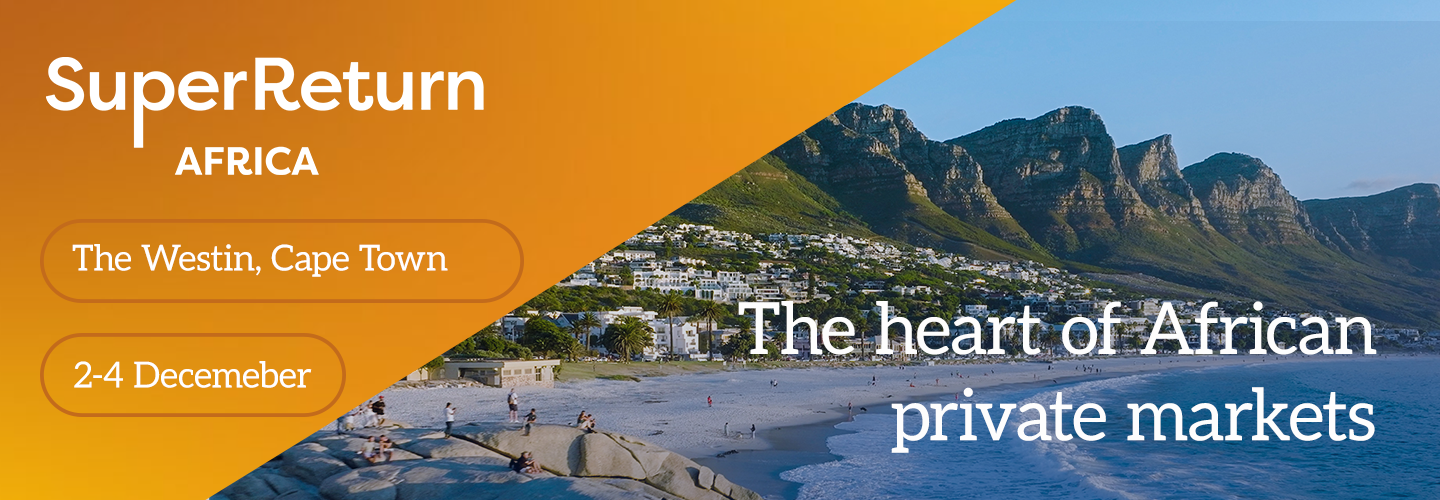"Africa is a blue ocean with transformative potential": Why Africa is a necessity, not a choice

Africa’s private capital story is no longer defined by 'potential'. It is a growth reality that investors cannot afford to ignore. As global capital slows in advanced markets, Africa is stepping forward as both a diversification play and a structural growth engine, year on year. Ahead of SuperReturn Africa in Cape Town, industry leaders and new data highlight why the continent is shifting from the margins to the mainstream of global private markets.
The next economic powerhouse
“Africa is a blue ocean with transformative potential to reshape the global economic landscape over the next 30 years,” says Eric Newman, Treasury Manager at the City of Stamford, in last year’s SuperReturn eMagazine [1]. That potential is quickly materialising.
According to the World Bank Sub-Saharan Africa's GDP growth is at 3.7%, and is projected to rise to 4.3% in 2027, well above advanced economies Like the U.S. at 1.9%[2]. Demographics remain the backbone: Africa’s population will reach 2.5 billion by 2050, with one in four people globally of African descent and an average age of just 24 [3].
Urbanisation is set to create 14 megacities by mid-century, driving consumer spending above US$2 trillion across food, housing, transport, healthcare, and financial services. For investors, this is no longer 'frontier optimism' but a structural growth story demanding disciplined allocation.
Climate and mobility at the heart of investment
Africa’s climate and energy transitions are proving investable at scale. Governments and private players are fast-tracking renewable power, e-mobility, and resource-linked industries. According to the bi-annual Energy and Petroleum Statistics Report, Kenya reports that 81.6% of energy supplied to the national grid came from renewable sources, with credit to geothermal energy (38.81%), hydro (24.74%) and wind (13.46%) [4]. BasiGo has deployed its 100th electric bus in East Africa, and plans 1,000 by 2027, underscoring how clean mobility is scaling in African countries. [5]
'Emerging market problems require emerging market solutions,' argues William Bao Bean, Managing General Partner, Orbit Startups. That mindset is visible in Africa’s approach: resource-constrained yet innovation-rich. From EV adoption models to distributed solar, Africa is creating scalable, low-capital solutions that may become global blueprints. According to AVCA, climate-aligned sectors now represent nearly 30% of deal value in African private capital, up from 19% in 2022 [6].
Gender-smart strategies driving alpha
Diversity is no longer optional, it's a performance driver. 'Funds with gender-balanced senior teams generate a 10–20% higher net IRR than male-led funds,' says Jessica Espinoza, CEO, 2X Global, whose work has shaped gender-lens investing worldwide. The 2X Challenge has set a new US$20 billion target for 2024–27, and African GPs such as DPI are mainstreaming gender into value creation plans. The next wave of capital allocation is being assessed not just on returns, but on the resilience, governance, and innovation diversity brings.
Managing risk as alpha
Africa’s complexity is undeniable: currency volatility, political transitions, and regulatory shifts remain real challenges. But investors are learning to treat risk as an opportunity rather than an obstacle.
'Emerging markets are not just a place to invest; they require a mindset shift -view them as a mosaic of opportunities, each with its own unique risks and rewards,' says William Bao Bean. That shift is visible in the data: In 2024, pressure from LPs prompted global fund managers to prioritise liquidity, which translated to a significant 47% YoY increase in exits, pushing exit volume beyond pre-pandemic levels. [7]
Risk management, once seen as defensive, is now where competitive advantage lies.
Unlocking domestic capital
The most important structural change underway may be the rise of local institutional investors. 'Mobilising domestic capital could significantly boost Africa’s VC/PE ecosystem,' argues Hamdiya Ismaila, CEO, Savannah Impact Advisory.
By mid-2025, African LPs contributed 25% of private capital fundraising, up from 18% a year earlier [8]. Pension funds in markets such as Nigeria, Kenya, and Ghana are beginning to allocate, often in local currency, which de-risks SMEs and infrastructure while fueling broader economic growth.
This shift is about more than money: it reflects Africa taking greater ownership of its development and capital markets future.
The rise of new managers
The African GP universe is changing fast. “For private market investors, Africa presents a frontier of growth where early movers can capitalise on the continent’s potential,” says Munazzah Siddique, Senior Conference Producer, SuperReturn Africa.
Emerging managers are building track records through smaller, flexible funds or even pooled, non-traditional vehicles. Family offices and private investors are stepping in where DFIs hesitate, recognising that entrepreneurial managers closest to the ground often capture the most compelling opportunities. This dynamic - lean, agile GPs aligned with local ecosystems - is where much of Africa’s alpha will be generated in the next cycle.
Looking ahead
Africa as a necessity, not a choice. The IMF forecasts emerging markets to grow at 4.1% in 2025, compared to 1.8% for advanced economies [9]. With China maturing and other emerging markets plateauing, Africa stands as the diversification and growth story global allocators can no longer overlook. What was once seen as a high-risk frontier is now a strategic allocation necessity. The challenge for investors is execution: finding the right managers, pricing risk correctly, and aligning with Africa’s domestic capital priorities.
At SuperReturn Africa 2025 in Cape Town, these are the conversations that will set the tone for the next decade of private capital in Africa.
References
[1] SuperReturn eMagazine. Future leaders: 6 top insights on emerging markets
[2] World Bank – Global Economic Prospects 2025
[3] UN DESA – World Population Prospects
[4] EPRA - Financial year 2024/2025
[5] Cleantechnica: BasiGo Deploys 100th Electric Bus In East Africa!
[6] AVCA – African Private Capital Activity Report Q2 2025
[7] AVCA 2024 Report (PDF)
[8] AVCA – African Private Capital Activity Report Q2 2025
[9] IMF – World Economic Outlook, July 2025 update
